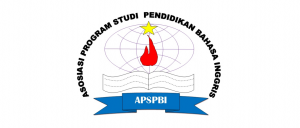Developing Big Books to Improve Young Learners' Vocabulary Acquisition
DOI:
https://doi.org/10.31002/metathesis.v8i1.267Keywords:
Research and Development, Teaching Media, Vocabulary, Young LearnersAbstract
Teaching vocabulary for EFL young learners always challenges the teacher. The researchers have investigated the condition of SD Islam Pojok 2 Kediri and found that the school only provided modules in the English class, so researchers aim to develop a medium called a big book. This study is research and development, adapted from Dick and Carey and modified by Sugiono into seven steps: need analysis, designing, expert validation, revision I, try-out, revision II, and evaluation. The researchers collected the data through observation, interview, and documentation, then analyzed it using content and narrative analysis techniques. The results of the study showed that there are four topics to assemble the big books, namely daily activity, jobs, tourism places, and food. The expert validation reveals that three big books have been eligible for use, and one needs to be revised. In the try-out process, it was found that the teacher and students liked the story and illustrations of the big books. It helps the students gain new vocabulary and strengthen their existing vocabulary. To sum up, developing big books to improve young learners’ vocabulary acquisition has been successful.
Downloads
Additional Files
Published
How to Cite
Issue
Section
License
Copyright (c) 2024 Metathesis: Journal of English Language, Literature, and Teaching

This work is licensed under a Creative Commons Attribution-ShareAlike 4.0 International License.
The copyright of the received article shall be assigned to the journal as the publisher of the journal. The intended copyright includes the right to publish the article in various forms (including reprints). The journal maintains the publishing rights to the published articles. Therefore, the author must submit a statement of the Copyright Transfer Agreement.

This work is licensed under a Creative Commons Attribution-ShareAlike 4.0 International License.
In line with the license, authors are allowed to share and adapt the material. In addition, the material must be given appropriate credit, provided with a link to the license, and indicated if changes were made. If authors remix, transform or build upon the material, authors must distribute their contributions under the same license as the original.



